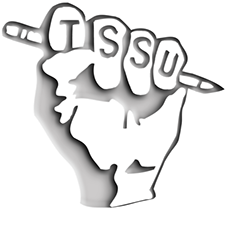Frequently Asked Questions


The following pages outline some of the most common questions and concerns that members have about their rights and responsibilities. This is by no means an exhaustive guide, so if you have any questions or concerns that can not be answered below, please don’t hesitate to contact us for help.
Please note that references to specific Articles refer to articles within the May 1, 2004 – April 30, 2010 Collective Agreement. Many articles are common to our membership as a whole, ie: Article IX No discrimination and No Harassment. However, articles that begin with an L, ie: L Article II Job Postings are only relevant to members in the ELC and ITP Programs.
Please scroll down for the answers to the following questions:
What categories can an LCI instructor be hired under?
The University hires LCI Instructors in the following categories (L Article III):
Continuing full-time: a continuing full time instructor has no predetermined end date and works a minimum of 35 hours per week and at least 42 weeks per year.
Continuing part-time: a continuing part-time instructor has no predetermined end date and works a minimum of 28 hours bi-weekly and at least 42 weeks per year.
Temporary: a temporary instructor has a predetermined end date.
How can I move from a temporary instructor position to a continuing part-time instructor position?
If you have been appointed for more than 2 terms as a temporary instructor, you may request a meeting with the Director to review your status. A copy of the review will be sent to the Union office and will be discussed at the next Labour Management meeting. If you have been denied a continuing position you may submit a written request to the Department asking for the reasons why.
What is a contact hour?
An instructional hour scheduled by the University.
What is a non-contact hour?
Time spent in preparation for your contact (instructional) hours and not scheduled by the University.
What is a full time work week?
A full time work week means a 5 day work day week with a maximum of 35 hours per week,. The 35 hours will be composed of up to 15 contact (instructional) hours with the remaining to be non-contact hours.
How is overtime calculated?
Overtime is defined as working over 17 contact hours in any given week. Overtime will be paid at one and a half (1.5) times your regular contact hour rate. (L Article V)
How am I placed on the seniority list?
Instructors are placed on the seniority list according to their date of hire (L Article VIII). However, be aware that if you take a leave longer than 6 months, your placement on the seniority list will be adjusted to reflect the period of absence beyond the initial 6 months.
Are temporary instructors placed on the seniority list?
Temporary instructors will be placed on the seniority list after completing 13 weeks of employment, with their seniority date being the start date of their first appointment. Temporary instructors may be removed from the seniority list if they are not rehired within 6 months of the end date of their most recent contract.
What if I'm laid off?
Both the instructor and the union should be notified in writing of a lay off 2 weeks prior to the date of the layoff. The Union then may request to meet to discuss the reasons, possible alternatives, and the impact on the instructor. The instructor will be placed on a layoff list until recalled, or for a period of up to 2 years (L Article IX).
Will my work be evaluated?
Every employee must be evaluated at least once during the semester. This evaluation may be done either by the students or the Director. The evaluative criteria must be made clear to the employee at the beginning of the term. A copy of the evaluation must be forwarded to the employee by the end of the first week of classes of the next term. Decisions not to reappoint an instructor cannot be based exclusively on student evaluations. Wherever possible, supervisors must bring serious or ongoing problems to the employee's attention in a progressive manner. This may include some or all of the following: counseling, oral warning, written warning, and suspension, all of which will be documented. See Article XVIII and L Article X.
I'm being harassed at work. What can I do?
TSSU members have two choices if they are being harassed or discriminated against in the workplace. The Collective Agreement has provisions under Article IX No Harassment and Discrimination which outlines the process for members to follow if they want to launch a grievance to address the problem. However, TSSU is also named as a constituency organization under the University's Human Rights Policy (GP 18) which gives our members the right to pursue harassment complaints by that route as well. Members have a right to union representation throughout, no matter which route they choose to follow. If you decide to take your complaint to the Human Rights Office (HRO) instead of using the grievance process, be sure to identify yourself as a TSSU member to the Director of Human Rights (or whomever you first have contact with in the Office) as soon as possible.
If you are being subjected to personal harassment, the University's Human Rights Policy will only take informal steps to resolve the issue. If this is not successful, formal steps can only be taken through the Union's grievance procedure.
Members have the right to grieve the University's response to an employment related harassment complaint. See Article IX
I've been accused of harassment or discrimination. What are my rights?
If you have been named as a respondent in a harassment complaint under the University policy, you are entitled to union representation throughout the process. Be sure to identify yourself as a TSSU member. The Director of Human Rights must also advise people who identify themselves as TSSU members of this right.
It may also happen that a member is named in a grievance under TSSU's Collective Agreement or the Collective Agreement of another union on campus. Here, too, the member has the right to union representation.
Members have the right to grieve the University's response to an employment related harassment complaint. See Article IX.
What's in my employee file? Can I look at it?
Article XIX outlines what is allowed to be in an employee's employment file. Nothing that is not mentioned in this article should appear in this file. Members are entitled to know what's in this file, and where all materials that are considered part of this file are located. Members may examine the contents of this file at any time (within reasonable notice) and any written comments on the contents will be added at his or her request. The contents of the employment file may be among the matters considered in appointing positions. Therefore, members should check on the contents of this file regularly to ensure that nothing which does not belong there, and which could have the potential to affect their future employment, at SFU or elsewhere, is contained in the file.
The University shall inform an employee in writing of any written reports which express dissatisfaction with the employee's work performance or related conduct no later than 10 working days after generation by the University.
An employee may request that any adverse reports be removed from their file and destroyed provided that 36 months have passed since the issuance of the report and no other adverse reports have been received. See Article XIX and L Article X.
What benefits do I have?
See Article L Article XII for further information.
Eligibility: To be eligible for benefits you must be a continuing employee with appointments of 28 hours or more bi-weekly working at least 42 weeks a year.
Medical Services Plan: The university will pay 40% of the cost of MSP premiums and deduct the remaining 60% from the employee's pay cheque. Members who want to apply for this coverage must sign up at Human Resources, phone 778-782-3237
Extended Health Plan: The extended plan is paid 100% by the University. See Pacific Blue Cross or your steward for the terms of the plan.
Dental Benefits: The dental care plan is paid 100% by the University. See Pacific Blue Cross or your steward for the terms of the plan.
Can I put my spouse and kids on my medical plan?
TSSU benefits extend to the member, the member's spouse (including common-law and same sex spouses) and his or her children.
What happens if I get sick?
Continuing full time instructors are entitled to 12 days of paid sick leave per calendar year. Continuing part-time instructors are entitled to paid sick days on a pro-rated basis. Note that an absence longer than 3 days must be accompanied by a medical certificate, satisfactory to the University. See L Article XII. Temporary instructors are not entitled to paid sick leave.
Can I take a personal leave of absence?
The University may grant a personal leave of absence without pay for up to 12 consecutive months. If you wish to take a leave of absence you must submit a written request to the Department no later than 2 months prior to your intended commencement date. The 2 months notice can be waived in cases of a personal emergency. If an application is denied, you will be provided with a written explanation as to why. See L Article XIII. Note that if you take a leave of more than 6 months in duration, your placement on the seniority list will be adjusted to reflect the period of absence beyond the initial 6 months.
Can I continue to receive benefits while on leave?
You may arrange with Human Resources to pay the costs required to maintain benefit coverage.
What if I need to take care of a sick family member?
You are entitled to up to 5 days of unpaid leave per each employment year to meet responsibilities related to the care, health or education of an immediate family member.
Do we have maternity or parental leave?
There are provisions for unpaid leave for birth mothers, birth fathers, and adoptive parents in Article XXV D and L Article XIV. See these sections for details about notice requirements, possible extensions and benefits.
Will the university pay for professional development?
$3000 will be made available annually for ELC and ITP employees wishing to acquire work specific skills that will help them perform their duties more effectively. A professional development fund committee will administer the allocation of these funds. You can download the application form from our website’s “Professional Development Fund” section.
